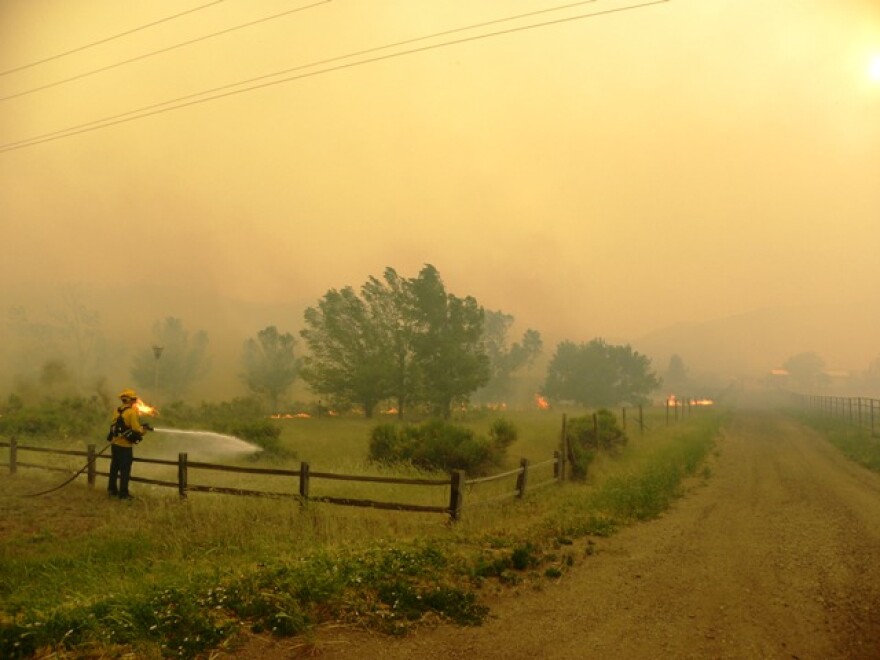A state committee tasked with studying wildfire issues recently finished its work with several recommendations. Among them, a tax credit to encourage people to mitigate fire risks and a proposal to give individual counties more authority to cut down hazardous trees.
The bi-partisan wildfire matters review committee spent several months examining all aspects related to wildfires. One proposed bill would pay death benefits to the families of seasonal firefighters who die in a Colorado fire.
“So many districts rely on volunteer firefighters,” said the bill’s proposer, Senator Ellen Roberts (R-Durango). “Hopefully this never happens, you need little incentives to validate why you’re doing something. “
“Our ability to fight wildfire is directly proportional to the people we have on the front lines,” Roberts said.
Other measures include a $2500 tax credit to help private landowners pay for fire mitigation. Representative Claire Levy (D-Boulder) proposed a measure to give counties more authority to pass ordinances requiring residents to remove trees.
“The idea came from these residents in Park county who say there are these absentee property owners who don’t take care of their land and create a fire hazard on their neighbors land,” Levy said.
While Levy is happy with the committee’s work, she also believes lawmakers missed the mark and didn’t focus on the highest priorities. Her biggest concern is population growth in the wildland urban interface.

“Burning forests isn’t a problem for anybody or anything unless you have people, and property and memories there,” Levy said. “We’re just going to keep compounding the problem by seeing more and more people move into these high hazard areas.”
Lawmakers in both parties agree it’s a problem, however, they couldn’t agree on how to legislate it. The committee scrapped a plan for a statewide building code.
There’s also the usual concern around how to pay for it any of it.
“What we’re really going to see the meaningfulness is what we fund,” said Senator Ellen Roberts (R-Durango). “You can create all these things, if you don’t commit the resources behind it then it’s just new laws on the books without any real impact.”
The discussion over funding won’t happen until later in 2013 when lawmakers deal with the state’s budget. Governor John Hickenlooper will formally present his budget to the joint budget committee on Nov. 7.






